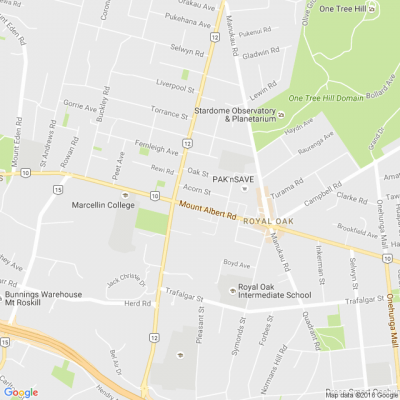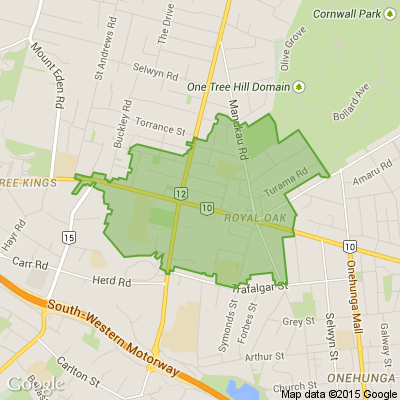DONATION’S NEEDED!
Kia Ora Friends,
Red Cross Shop Onehunga is in need of pre-loved good quality items.
Furniture,kitchen appliances,electrical,homewares that you would like to donate to our store.
We offer free pick up for furniture and bulky donations.
Smaller items can dropped off during trading hours.
Thank you for your support 😊
What's one Kiwi song you'll never get sick of?
It's NZ Music Month and singer-songwriter Lorde is impressing the world again with a new single called 'What Was That' which is at number one in the US Spotify charts and second in the New Zealand charts.
Let's celebrate all of our homegrown talent this month, share one Kiwi song that you still absolutely love?

Fatal crash this morning
Police can confirm one person has died following a crash on the South-Western Motorway this morning.
The single vehicle crash was reported just before 5am, on northbound lanes near Onehunga.
Sadly, the sole occupant of this vehicle died at the scene.
Earlier closures of northbound lanes have now lifted, and Police advise motorists to continue to expect delays as earlier backlogs clear.
We appreciate motorists' understanding this morning while emergency services carried out their work.
The Serious Crash Unit examined the scene this morning, and an investigation is underway into this morning's crash on behalf of the Coroner.

A 26yo woman has won a legal bid to refuse food and medical treatment
A 26-year-old woman with a history of health problems has won an order to “let nature take its course” - a move that could allow her to starve to death in hospital where she is refusing food and medical intervention.
The woman, whose name is suppressed, has a long and complicated history of health issues and has spent large portions of the past seven years in the hospital.
While she and her family believe she suffers from gastroparesis, a physical condition affecting the stomach, there has never been any medical evidence that she has the condition.
Instead, she’s been diagnosed with a factitious disorder, a mental health condition in which the sufferer consciously self-induces, feigns or exaggerates physical or psychiatric symptoms to receive medical care. It cannot be treated with medication.
Despite this, neither the woman nor her parents has ever accepted that there is a psychological or psychiatric component to her condition.
As a result, she has refused to engage in any kind of psychological therapy that might help.
The woman has been subject to orders under the Protection of Personal and Property Rights Act since 2018, which permitted health professionals to treat her, including food via a tube.
These orders have been extended eight times but expired in October last year.
The following month, the woman collapsed at home and was re-admitted to hospital in Auckland, where she’s remained since.
During that time, she’s undergone 30 surgeries for various infections and, since early this year, has limited her food intake and refused any further surgical intervention.
The woman is described as being emaciated and frail, bed-bound and in a dark hospital room with closed curtains as natural light hurts her eyes.
Te Whatu Ora has applied for another order under the Act, which would allow medical professionals to continue to treat her.
However, the woman has opposed any such order being made and does not want any treatment administered against her will.
Instead, she wants to let nature take its course, even if that results in her death.
And now, in a recent ruling from the High Court at Auckland, she’s been granted her wish.
‘The pattern of poor decisions is life-threatening’
=======================================
The woman told a court-appointed legal adviser living in a hospital long term - as she has done for 1588 days (about four years and three months) in the past five years - was not, for her, a life.
She is completely dependent on others for assistance and does not even have sufficient strength to lift herself up in bed. She says she no longer wants to be under the control of anyone else, including medical professionals.
The woman told the adviser, who visited her in the hospital, that she’d been forced to undergo psychotherapy in the past, but it did not help, and she doesn’t want to do it again.
While the woman accepts that without further medical intervention, she will likely die, she said she isn’t suicidal and doesn’t want assisted death.
Her parents have also accepted her decision not to consent to further treatment.
When a treatment order was first imposed in 2018, one expert found that in most issues, the woman had full capacity, except when it came to healthcare decisions.
“The pattern of poor decisions is life-threatening (she has left the hospital against medical advice, discontinued care, requested palliation for a treatable condition), and appears to have no insight (and is... resistant to input) around the basis for her condition,” that expert found.
“Therefore, I think she is impaired around her ability to understand the nature and consequences of her situation.”
A Family Court judge then granted a treatment order on the basis that she didn’t “appreciate her situation and its consequences” and lacked the capacity to make informed decisions about her medical care.
Fast forward to 2025 and three experts produced by Te Whatu Ora conceded she had the ability to understand the decisions she was making about her health, as well as the likely consequences.
However, all three were concerned that she was basing her decision on what was essentially a misdiagnosis of gastroparesis, when in reality, all her symptoms are psychological.
‘Best interests lie in letting nature take its course’
========================================
After a hearing at the High Court at Auckland in April, Justice Graham Lang found that just because the woman refused to accept the factual diagnosis of her condition, it didn’t mean she was mentally incapable of making decisions about her own healthcare.
“She has obviously based her decisions on this erroneous belief. Further, she is unwilling or unable to countenance the possibility that her belief may be incorrect,” Justice Lang said in his decision.
“A person may validly agree to, or refuse, medical treatment even where they do not accept the diagnosis that has led to the offer of the treatment in question. The critical issue is whether they truly understand the nature, purpose and effect of the proposed treatment.
“Further, she knows that treatment and nutrition will keep her alive. This means she understands the gravity of the consequences that her decisions may produce.”
Justice Lang ruled the woman had the mental capacity to decide her own fate.
Justice Lang also noted the woman had repeatedly refused to accept psychological intervention, so it was unlikely that any court order would convince her to seek it as a treatment path.
“[Her] death is not an inevitability, although there appears little prospect at this stage that she will engage in the psychiatric care that offers her the best hope of improving her disorder,” Justice Lang said.
“However, she is now in a position where the Court would be required to choose between making orders that override [her] wishes in the hope of preserving a theoretical prospect of her living a fulfilling life, or allowing her the dignity of deciding for herself.
“As matters currently stand, [she] has decided that her best interests lie in letting nature take its course. I consider the Court should respect that decision given that she has made it after receiving nutrition and treatment over many years with little apparent accompanying long-term benefit.”
Justice Lang said that in reaching that conclusion, he took into account that the woman is well aware she needs to eat to stay alive, and can ask at any time to get help.
“It is for her to decide whether she wishes to avail herself of this option.”
A Te Whatu Ora spokesperson said it could not comment on individual patients, but confirmed that it would not be appealing the ruling.
‘Freedom of choice’
================
Human rights lawyer Michael Bott, a former Council for Civil Liberties national chairman, told NZME that freedom of choice meant the ability for people to make any decision they wanted.
“It’s the freedom to make bizarre choices, or choices that don’t make sense to anyone else necessarily.”
Bott said that just because someone makes what is perceived to be the wrong decision doesn’t mean the state should compel them to make the objectively “right” decision.
Bott also said that if Te Whatu Ora thought the woman was mentally unwell it could have applied under the Mental Health (Compulsory Assessment and Treatment) Act for an order to force her to accept medical treatment.
“As a general rule people make decisions about their health and they choose to either accept or reject the advice of the experts, in this case here she has a belief that trumps that,” he said.
“No one is going to change her view.”
==================================================










 Loading…
Loading…





